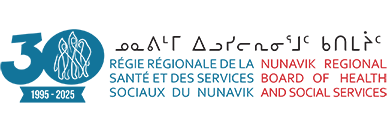The D-11.1 - Act to facilitate the disclosure of wrongdoings relating to public bodies (hereinafter The Act), in force since May 1, 2017, offers anyone the opportunity to report wrongdoing to the Ombudsman in complete safety.
On May 30, 2024, the National Assembly assented to the Act to enact the Act respecting protection against reprisals related to the disclosure of wrongdoing and to amend other legislative provisions. The main objective of this Act is to make the process of disclosing wrongdoing simpler and more effective, while strengthening protection measures for individuals facing reprisals as a result of making a disclosure.
What is wrongdoing?
A wrongdoing is an act committed or about to be committed by or against a public body such as the Nunavik Regional Board of Health and Social Services (hereinafter NRBHSS).
Here are the offences covered by the Act:
- Misuse of funds or property of a public body, including those it manages or holds for others;
- Serious mismanagement within a public body, including abuse of authority;
- A serious breach of ethical and professional deontology;
- Contravention of a law or regulation applicable in Québec;
- An act or omission that causes or is likely to cause serious harm to the health or safety of a person or to the environment;
- Ordering or advising a person to commit a reprehensible act.
Under certain conditions, the Ombudsman's free legal consultation service can help you with your disclosure. Access to legal advice
Who may be affected by a disclosure?
Any person who has committed a reprehensible act within or in relation to the establishment may be the subject of a disclosure, whether it involves:
- A member of staff, regardless of hierarchical level;
- A person, company, group or any other entity (for example: in the awarding or execution of a contract or in the granting of financial assistance)
Who can make a disclosure to the Ombudsman?
Anyone can disclose wrongdoing within a public body. You do not need to be an employee of the government or public body concerned to make a disclosure.
If you're aware of wrongdoing, but don't know exactly who committed it, you can still disclose the information you have.
Am I protected?
Identity protection
The Ombudsman's services are completely free and confidential. Their online forms are secure to guarantee the protection of your personal information. The Ombudsman ensures the confidentiality of your identity throughout the verification and investigation process, and even afterwards. You also have the option of making an anonymous disclosure; in this case, it is crucial that the information provided be sufficiently detailed to allow proper verification and investigation.
Protection against retaliation
The Act respecting protection against reprisals related to the disclosure of wrongdoings prohibits anyone from retaliating against a discloser or a person who has cooperated in an audit or investigation following a disclosure.
It is also forbidden to use threats or intimidation to prevent someone from making a disclosure or cooperating with an investigation. Penalties and fines are provided for anyone who contravenes the Act.
In the event of reprisals or threats of reprisals, you must file a complaint with the Québec Ombudsman without delay by completing the reprisal complaint form, which you can find under the "How am I protected?" tab in the "Whistleblowers" section of the Québec Ombudsman website.
Form - Reprisal complaint | Protecteur du citoyen
How do I make a disclosure of wrongdoing?
A disclosure of wrongdoing against the establishment must be addressed to the Québec Ombudsman via their online disclosure form, which you can find on the Québec Ombudsman website in the "Whistleblowers" section under the "How to disclose wrongdoing?" tab:
Form - Disclosing wrongdoing | Protecteur du citoyen
Contact information for the Ombudsman
Public Integrity Disclosure Investigations Branch
Ombudsman
800, place D'Youville, 19e étage
Québec (Québec), G1R 3P4
Toll-free number : 1 800 463-5070
You may also contact the establishment's person in charge of ethics and integrity (PCEI) for information on making a disclosure or protection against reprisals.
PCEI contact information
Stéphanie Turcotte
Quality, Evaluation, Performance, Ethic coordinator
Nunavik Regional board of Health and Social Services
Do you have any questions?
For more information, please visit the section of the Ombudsman website dedicated to disclosing wrongdoing..
